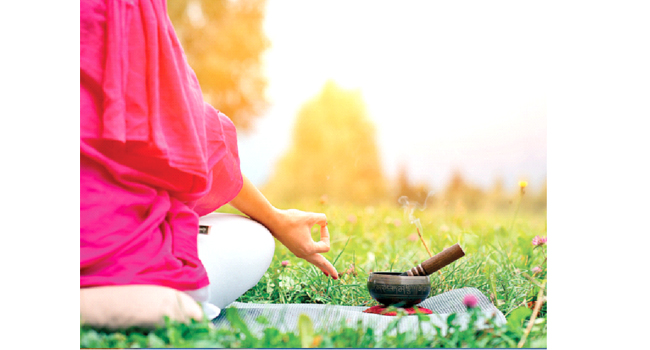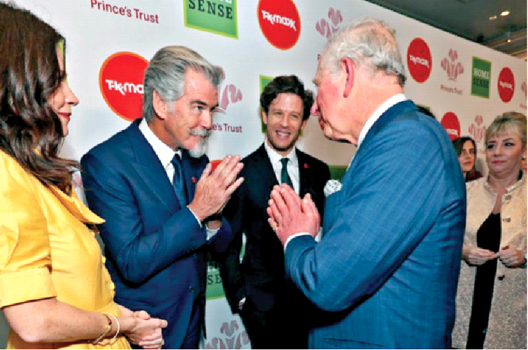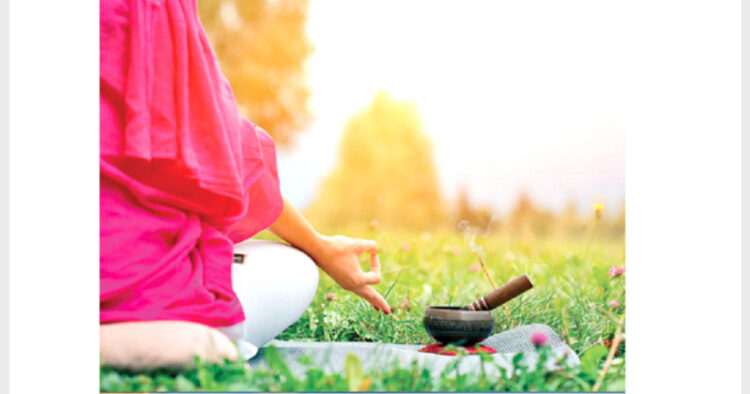
Yoga, mantra and meditation can increase our psychological immunity and help us be less psychologically vulnerable to our current increasingly divided, stressful and disrupted environment
The Coronavirus shows a breakdown in our collective immunity, at both physical and psychological levels. It reflects a greater breakdown in the biosphere, which we humans have disrupted in many ways. The biosphere sustains the integrity of the global Prana that sustains our individual prana as well. Prana is the energy that brings life and harmony to all.
Even if this difficult virus comes under control, its onset suggests more such difficult problems as our society becomes more artificial in terms of how we live, our air, water, food, urban and technological existence, as well as how we have polluted and damaged our natural environment in many ways from the soils to the sky.
Note we are not just proclaiming some doomsday but looking at the long term effects of our current developing technological civilisation. The ability of viruses to spread is increased by the centrality and vulnerability that links the world by way of travel and communication for good or for ill.
The main force behind our immune system is called Ojas in Ayurveda, which refers to the essence of all the bodily tissues and the ultimate resort of both our nutrition and our genetic inborn strength. This can be increased by proper food and herbs as well as by natural living on all levels.
We also see a breakdown in the psychological immunity of people individually and collectively. Psychological immunity is indicated by our ability to withstand difficulties, opposition, stress and uncertainty. It is indicated by detachment, self-discipline and the capacity for introspection. Our current media based culture tends to weaken our psychological immunity, making us so outward in our views that we lose the ability to contact the peace of our own inner Being and Divine Self. This breakdown of psychological immunity is perhaps as dangerous as the breakdown of physical immunity and both go together—and both depend upon our connection with nature and a healthy biosphere.
World adopts ‘Namaste’

Prince Charles greets Pierce Brosnan with a Namaste gesture
With the threat of the Coronavirus spreading to newer locations, the world is looking for solutions to stop the spread of the virus. Body contact and touch being one of the foremost reasons for the spread of the deadly virus, handshakes to greet each other is now seen as passe. The age-old Bharatiya practice of greeting with folded hands ‘Namaste’ is fast becoming the norm worldwide.
Last week, Israeli Prime Minister Benjamin Netanyahu urged his countrymen to adopt ‘Namaste’ instead of shaking hands, as a measure to prevent the spread of the deadly Covid-19. He was speaking at a press conference following a review meeting on the epidemic. Explaining few simple steps such as avoiding handshakes while greeting people may be replaced with other forms of greetings like the Indian Namaste, he also demonstrated how Indians greet each other with a Namaste, at the press meet.
PM Narendra Modi too has encouraged people to use the age-old Bharatiya tradition of greeting with Namaste, instead of using a normal handshake as one of the measures to prevent transmission of the novel corona virus. He said this while addressing the beneficiaries of the Janaushadhi Kendras via video conferencing on Saturday.
India’s Ambassador and Permanent Representative to the United Nations Syed Akbaruddin tweeted that ‘Namaste ‘, a healthy Indian tradition is gaining new ground at the UN as diplomats strive to keep in tune with the times.
Italy is one of the European countries that has suffered the most from the novel coronavirus. The Italian embassy in
India has tweeted that Italy and India are working together on dealing with the Coronavirus situation and for a positive bilateral and global agenda. The tweet ends with a ‘Namaste’ with an image of the New Italian Ambassador in India Vincenzo De Luca greeting Vikas Swarup, Secretary(West) at India’s Ministry of External Affairs with a ‘Namaste’.
Yoga, mantra and meditation can increase our psychological immunity and help us be less psychologically vulnerable to our current increasingly divided, stressful and disrupted environment. Outer difficulties push us back on our inner strength. We have been relying too much on external factors for our wellbeing. We must recognise that our ultimate strength lies within our own consciousness for which this current human life is but one episode in a greater cosmic existence.
(The writer is a famed practitioner of Ayurveda and Hindutva scholar)













Comments